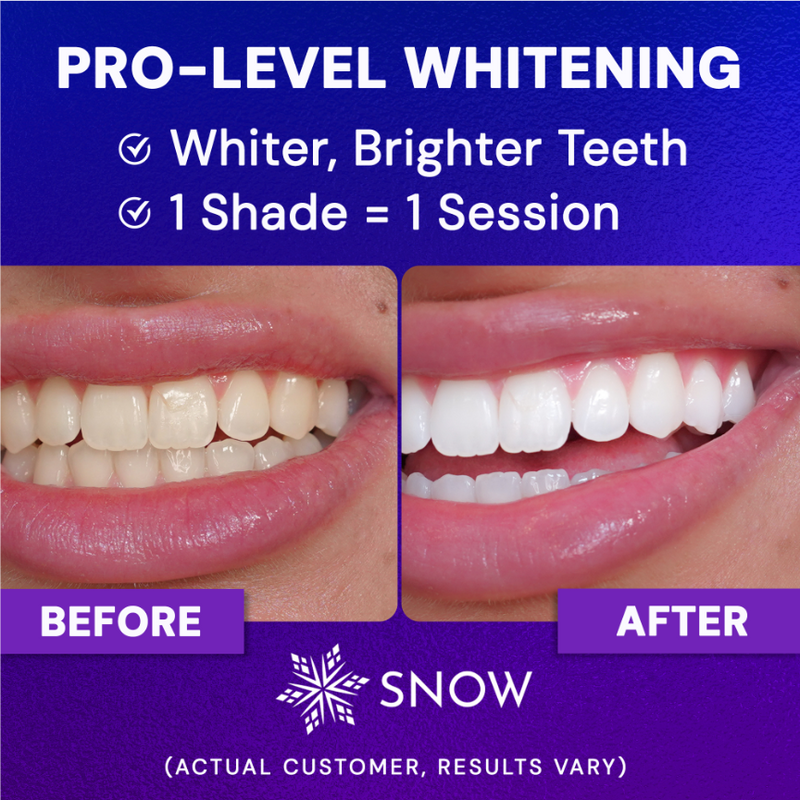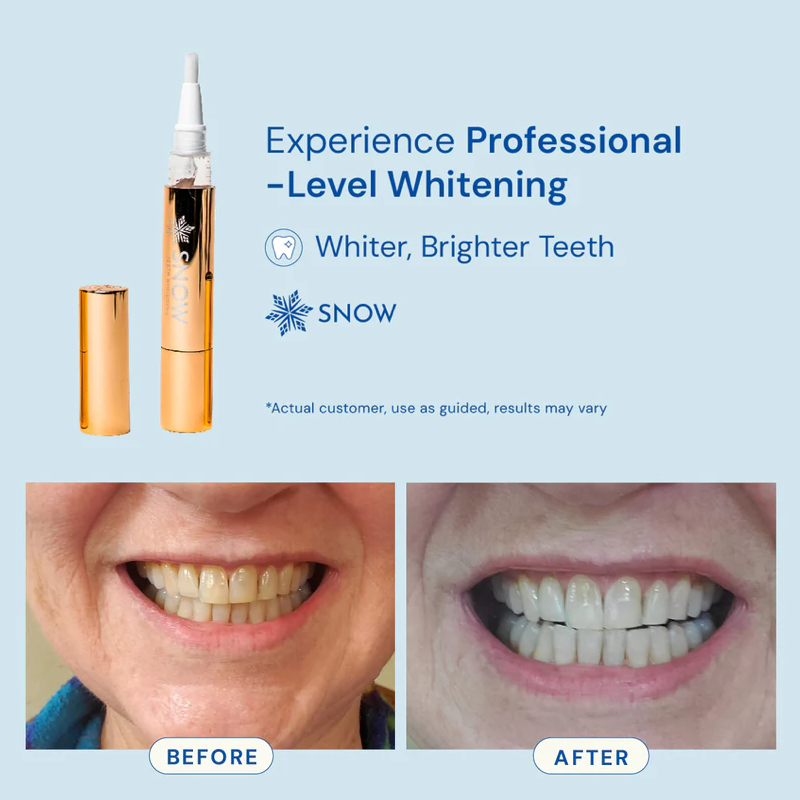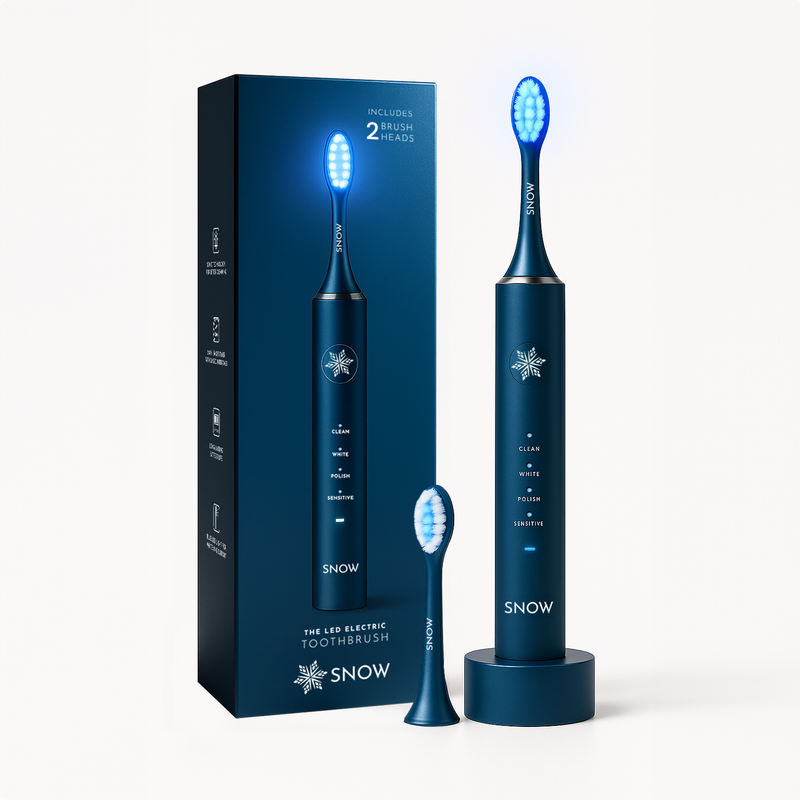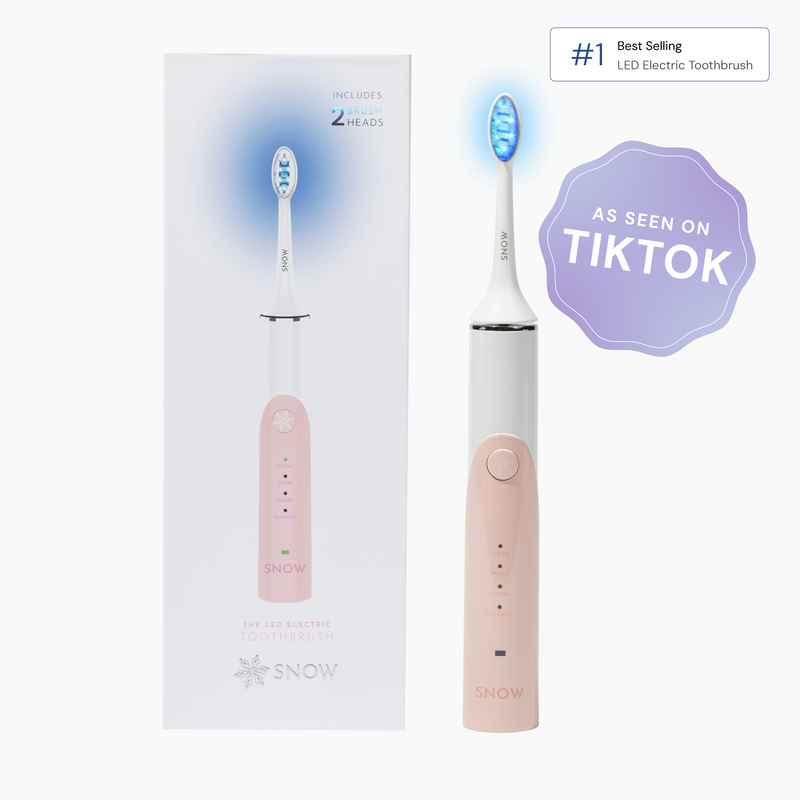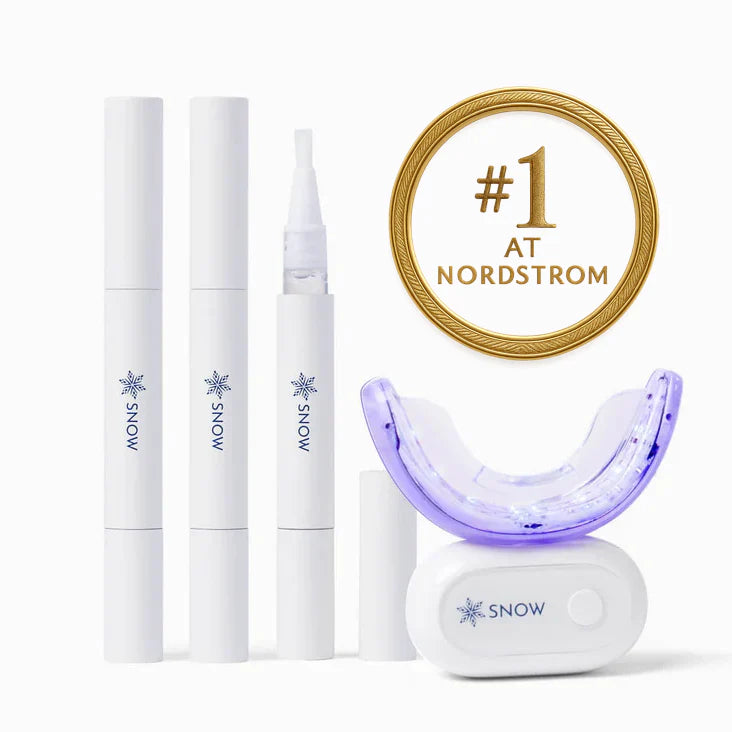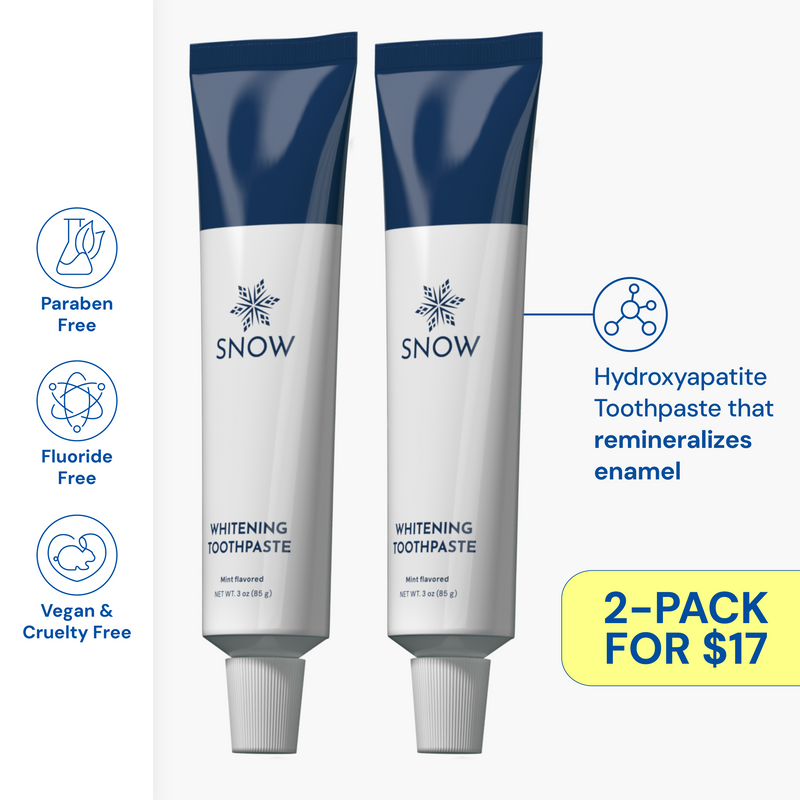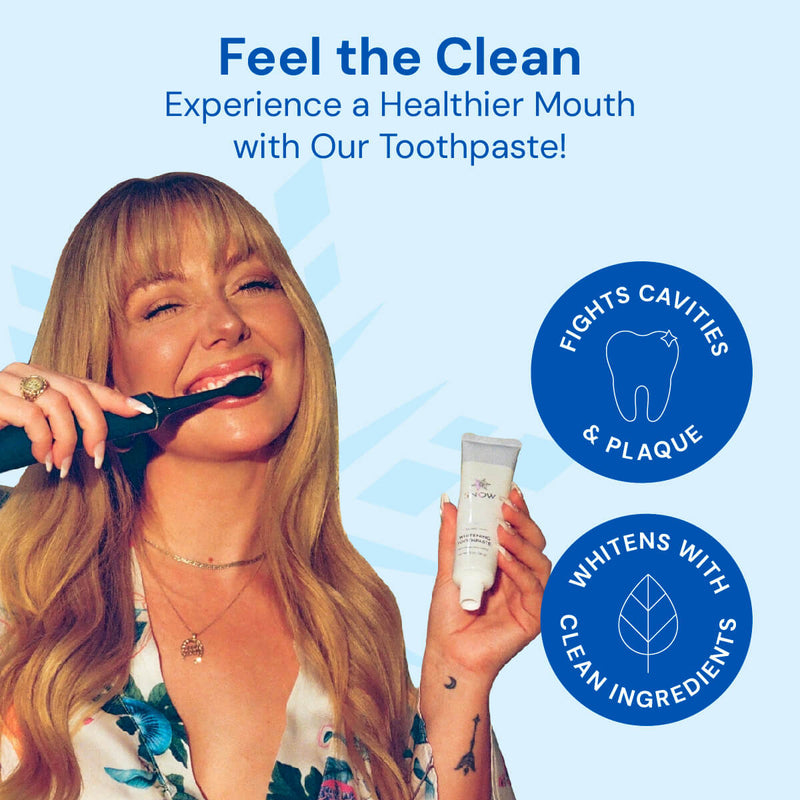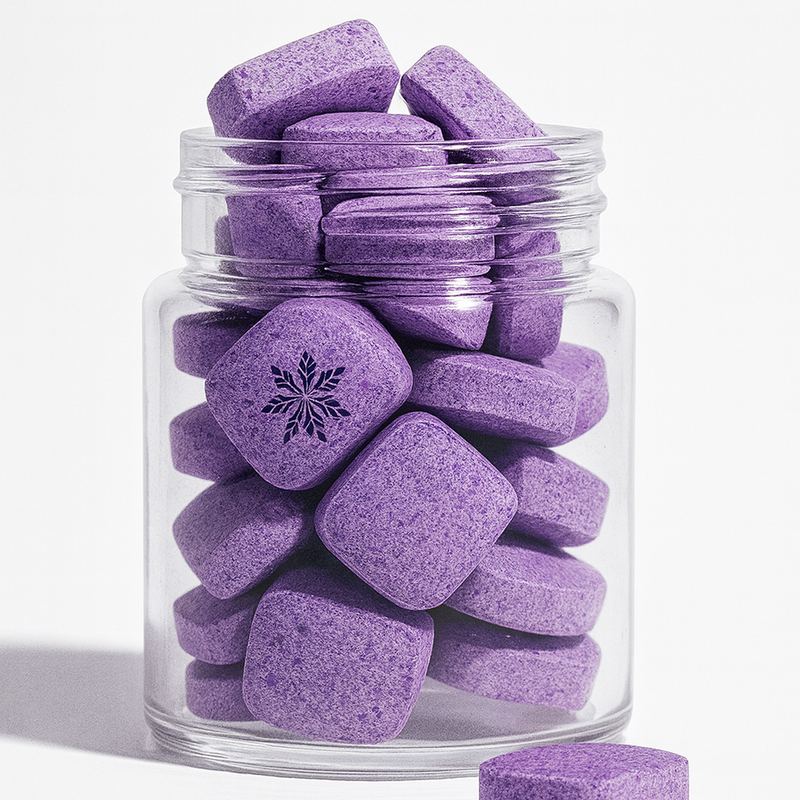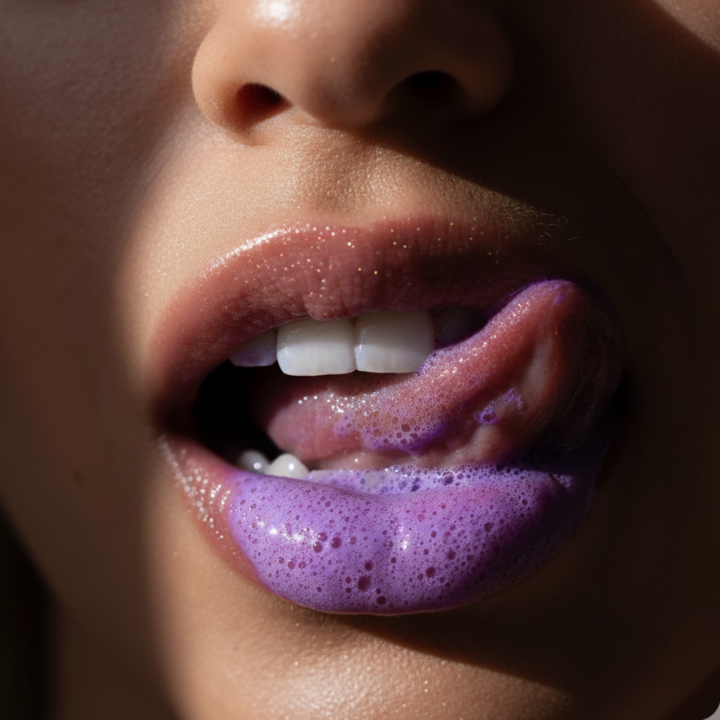If you've ever wondered, why is my tongue white? You're not alone, many people have experienced having a white tongue.
With this condition, your tongue turns white and there may be a thick white coating over it. This may happen on your entire tongue, only the back part, and sometimes in patches. You may also experience bad breath or a foul taste in your mouth.
White tongue can also occur in combination with hairy tongue, a harmless oral condition that makes your tongue appear furry. The bumps you’re seeing are called papillae, these are small bumps that contain your taste buds. White tongue can suddenly show up or happen gradually over time.
In most cases, white tongue is not a serious condition and it’s nothing to worry about. Very rarely it can be an early sign of mouth cancer or infection. Thankfully, a white tongue is usually easily treatable.
Why is my tongue white?
You may have a white tongue or tongue discoloration, a weakened immune system, or poor oral hygiene. Poor oral health is one of the biggest causes of a white tongue. Food particles and bacteria can get caught between papillae and cause your tongue to turn white.
What causes a white tongue?
There are a few conditions and lifestyle habits that may also cause a white tongue.
Common causes of white tongue include:
Poor oral hygiene
One of the main causes of white tongue is a poor oral health routine. There are small bumps on the tongue, known as papillae, they can become irritated or inflamed if you do not practice proper oral care. It's important to take care of your tongue by brushing daily, using mouthwash, and investing in a tongue scraper.
Dry mouth
Your mouth gets dry when there’s a shortage of saliva production. This can result in bacteria building up since saliva protects your teeth. Dry mouth could also be a symptom of poor oral hygiene, alcohol consumption, or side effects from certain medications.
Dehydration
A lack of fluids can result in dehydration which may also result in an increase in bacteria that causes white tongue. Make sure to drink plenty of water and stay hydrated.
Tongue injury
Certain factors can cause irritation such as retainers, braces, spicy foods, and a crooked bite. Small wounds and abrasions open a door for germs and bacteria.
Consumption of alcohol
Alcohol also causes dehydration and bacteria buildup on the teeth. It can leave the tongue feeling sore and dry, causing it to be white.
Smoking or chewing tobacco
Smoking and tobacco use can also increase the risk of oral cancer and irritate papillae.
Oral cancer
In some cases, a white tongue may be an early sign of oral cancer. If you notice white or red patches on the front or back of your tongue, it may be tongue cancer. See a doctor to be sure.
Certain medications
The extended use of antibiotics could lead to an oral yeast infection or white tongue.
Geographic tongue
This condition happens when the skin on your tongue is regrowing. In this situation, the parts on the upper layer of your tongue shed quickly which can leave your tongue vulnerable to getting infected.
Oral lichen planus
Oral lichen planus is a chronic inflammatory condition that is caused by disruption of your immune system and can cause white tongue, white patches, ulcers, discomfort, and swelling.
Leukoplakia
Irritating substances such as tobacco and alcohol can lead to leukoplakia. This is a condition that is quite common and is caused when the cells in the lining of your mouth overgrow.
Leukoplakia may appear as thick white patches on the tongue, cheeks, and gums. This condition is not usually serious. However, in rare occurrences, it can turn into cancer after years or even decades.
Oral thrush
Oral thrush is a fungal infection in the mouth caused by yeast, also known as candida. Yeast overgrowth can be problematic. This condition may cause white patches, redness, soreness, and loss of taste.
People likely to develop oral thrush may have a weak immune system, poor oral hygiene, or maybe taking antibiotics.
Ways to treat white tongue
Usually, a white tongue doesn’t need to be treated. It often goes away on its own within a few weeks with the implementation of good oral hygiene. However, if it’s lasting longer than a few weeks then you should see a doctor.
Common treatments for tongue symptoms:
-
Hairy tongue. In this case, you’ll need to level up your oral hygiene and practice brushing your tongue more. Your doctor may also prescribe medication to help treat this condition.
-
Tongue rash. White patches or a rash may not require treatment. Your doctor may provide you with mouthwash or sprays to soothe your symptoms.
-
White patches. There may not be a special treatment for this condition. You'll need to avoid any foods and drinks which cause any irritation. White patches may be removed by cleaning the tongue with a tongue scraper.
-
Mouth fungus. Often caused by a yeast infection, can be treated with prescribed anti-fungal medications. Medication may come in the form of tablets, gels, or liquids.
-
Tongue cleaning. Tongue scraping can help clean the coating on your tongue and remove bacteria. A healthy tongue should be pink or light red.
Ways to prevent white tongue
In most cases, a white tongue is nothing to be worried about. In rare cases, it can be more serious and cancerous.
Here are a few ways to prevent white tongue:
- Brush your teeth twice a day and floss daily
- Use a tongue scraper
- Limit the intake of alcohol and tobacco
- Avoid any medications that can cause dry mouth. If you have to take these medications, drink more water to stay hydrated properly
- Visit the dentist regularly to keep your mouth healthy
Some people are more susceptible to white tongue than others. It’s important to practice excellent oral hygiene to avoid having a white tongue. Regular visits to the dentist for routine cleanings and exams will also help you maintain your oral health.
Dentists recommend that you schedule visits every six months to prevent oral conditions from worsening. It’s also important to make mindful lifestyle choices, practice good hygiene, and limit your intake of alcohol and tobacco.
When to see a doctor
As previously mentioned this condition is usually harmless. However, consider seeing a doctor if you notice any of the following oral symptoms.
- Strange and sudden changes in your tongue
- Extreme pain or itching
- The condition does not improve after a few weeks
- You notice bumps or lumps on your tongue
- If you are having any trouble eating, or speaking
- If you have a weak immune system and your case of white tongue is worsening
Frequently Asked Questions
How do I get rid of the white coating on my tongue?
You may be able to get rid of the white coating with a tongue cleanser or by brushing gently with a soft-bristled toothbrush. There are certain mouthwashes that may also help get rid of undesired tongue coating. Consult your dentist to see what they advise.
What does white tongue indicate?
There are multiple causes of white tongue. Often it is from lack of cleanliness or inflammation.
Does Covid make your tongue white?
COVID-19 individuals saw a variety of tongue coat alterations. According to Pang et al., a pale red tongue with a white coating is frequent in mild to moderate SARS-CoV-2 infection. Furthermore, oily coating was identified as a prominent feature in all individuals.
Does white tongue mean you are sick?
The majority of reasons for a white tongue aren't serious. One of the most prevalent reasons for a white tongue is poor oral hygiene, which may be remedied by changing oral health habits. A white tongue can be an indication of a potentially deadly condition, such as syphilis or oral cancer, in rare situations.
Summary
White tongue is experienced by a lot of people. It can cause a white coating or patches on your tongue, halitosis, redness, or pain. It happens when bacteria get trapped on the surface of your tongue and in most cases it is not a serious condition. White tongue can be prevented by taking good care of your oral hygiene.
Some people are more at risk for getting oral conditions than others. People with diabetes, smokers, those with weak immune systems, and alcohol and tobacco users tend to be at higher risk for developing oral issues.
It’s important to visit your dentist regularly and make a plan to take better care of your oral hygiene. Your lifestyle habits also play a big role in your dental health. Make sure you’re abstaining from harmful substances and eating a healthy diet.















































